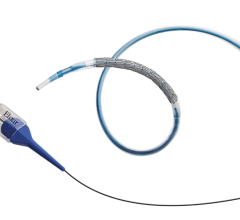March 9, 2007 — New studies show that about 60 percent of drug-eluting stents are used in off-label indications in the U.S. A series of studies is published in the March 8 issue of the New England Journal of Medicine.
Release of these studies comes on the heels of of a U.S. House committee request March 5 for safety data from two key manufacturers of coated stents. Rep. Henry Waxman, D.-CA., chairman of the House Oversight and Government Reform Committee, asked Boston Scientific and Johnson & Johnson to provide documents on their stents as part of an investigation into product safety and off-label use, according to news reports.
Jeff Mirviss, vice president of stent marketing at Boston Scientific told “Diagnostic & Invasive Cardiology” Thursday that his company approaches FDA and the public with complete transparency regarding its DFUs and the specifics of its FDA-cleared stent indications. Both Boston Scientific and the FDA, he said, want to preserve the individual choices of physicians, who use DES at their case-by-case discretion to treat patients with blocked coronary arteries.
The coated stents have FDA approval for use in patients with a single blocked artery who do not have any accompanying medical problems, such as diabetes. But the journal studies indicate that many patients are getting several stents, some under emergency conditions, such as following a heart attack, even when there are other medical complications, according to a HealthDay Reporter article.
The FDA meeting was held because of reports that patients receiving coated stents had a higher rate of blood clots. But that problem was "a small concern" compared to widespread off-label use, said Dr. Andrew Farb, an FDA medical officer who wrote an accompanying perspective piece in the journal.
Medicare is reviewing whether it will continue to pay for off-label use of the coated stents, according to Dr. Gregory D. Curfman, executive editor of the journal. "We have no idea what Medicare will do," he said. "Obviously, it would be a major step if they did not reimburse for off-label use."
The newer studies are aimed at heightening awareness of the issue, Dr. Farb said. "When you have any type of medical intervention, when you see more complicated patients or lesions, you will see a higher rate of adverse events," he said. "That is what has been observed in these studies. Our goal is to make the medical community at large aware of the issue."
In part because of such findings, "the percentage of drug-eluting stents that are being implanted has declined over the past few months," said Dr. William Maisel, a cardiologist at Beth Israel Deaconess Medical Center in Boston, who wrote another perspective piece for the journal.
Studies are needed to answer questions about off-label use, says Dr. William Maisel, a cardiologist at Beth Israel Deaconess Medical Center in Boston, who wrote another perspective piece for the journal.
"Data currently are not sufficient to make a decision," he said. "It is important to make a distinction between something you know to be bad and something you don't know the answer to, and to many off-label uses we don't know the answer," he said.
Another pressing issue is that of late thrombosis, or blood clots, in stent recipients, both Maisel and Farb said. Studies show a slight but definite increase of these clots, generally linked to discontinuation of the anti-clotting medications Plavix and aspirin.
According to Mirviss at Boston Scientific, overall occurrence of late stent thrombosis is one to two percent.
The widespread off-label use of drug-coated stents "is an enormous public health concern" he added. "It is extremely important for patients and the medical society to understand this issue."
One major problem is that cardiologists often use stents in cases where "the recommended gold standard therapy is coronary bypass surgery," Michler said.
This article includes original reporting by Ed Edelson, HealthDay Reporter.


 July 02, 2024
July 02, 2024 









